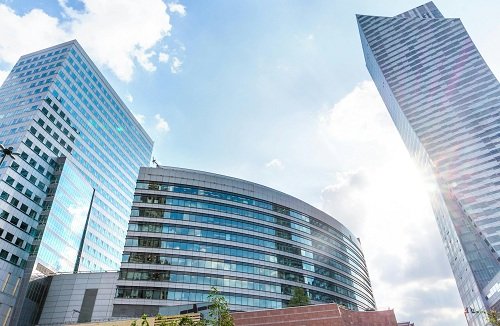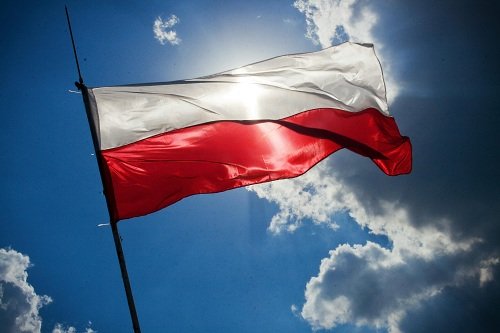Introduction

Every year, many Pakistanis dream of a better future in Europe, and Poland often seems like a promising destination. But while the “desi dream” of a stable job, quality education, and a better lifestyle seems achievable, the reality can be quite different. For some, it becomes a “Polish nightmare” filled with unexpected challenges.
This blog will highlight the most common problems faced by Pakistanis in Poland and suggest practical solutions to overcome them. If you’re planning to move or have already moved to Poland, this guide will help you prepare for the journey ahead.
Table of Contents
- Why Do Pakistanis Move to Poland?
- Common Problems Faced by Pakistanis in Poland
- Solutions to Overcome These Problems
- Useful Resources and Links
- Conclusion
Why Do Pakistanis Move to Poland?

Poland has become a popular destination for Pakistanis seeking work, education, and better living standards. Some key reasons for this migration include:
- Educational Opportunities: Affordable tuition fees and scholarships attract Pakistani students.
- Job Market: With Poland’s growing economy, there are job opportunities, especially in construction, IT, and manufacturing.
- Path to Europe: Many see Poland as a gateway to other European Union (EU) countries.
While these opportunities sound attractive, the path is often riddled with challenges.
Common Problems Faced by Pakistanis in Poland
1. Language Barrier

One of the biggest problems is the language barrier. Most Poles communicate in Polish, and English is not as widely spoken as in other European countries. This makes everyday tasks like grocery shopping, visiting the doctor, or filling out paperwork extremely difficult.
2. Cultural Differences

Cultural differences between Pakistan and Poland can be overwhelming. From food to social norms, everything is different. For instance, Poles prefer direct communication, while Pakistanis often use polite, indirect language. This can lead to misunderstandings in both personal and professional settings.
3. Harsh Weather Conditions

Pakistan’s climate is generally warm, while Poland experiences cold winters, sometimes dropping below -10°C. For newcomers, adapting to such weather is physically and mentally challenging, especially if they have never experienced snow.
4. Job Market Challenges

While jobs are available, they are not always easy to get. Language skills, lack of Polish certifications, and competition from local job seekers can make it hard for Pakistanis to secure stable employment.
5. Discrimination and Racism

Unfortunately, some Pakistanis report experiencing racism and discrimination. Negative stereotypes, lack of cultural understanding, and biases from locals can make social interactions and professional relationships more challenging.
6. Homesickness and Isolation

Being far from family and familiar surroundings can lead to homesickness. Without a strong community or support network, feelings of isolation can affect mental well-being.
Solutions to Overcome These Problems
1. Overcoming the Language Barrier

- Learn Basic Polish: Apps like Duolingo and local language courses can help you learn Polish basics.
- Use Translation Apps: Google Translate can be a life-saver in emergencies.
- Join Language Exchange Groups: Connect with locals who want to learn English in exchange for teaching Polish.
2. Adapting to Cultural Differences

- Cultural Awareness: Take time to understand Polish customs and etiquette. Small actions, like learning Polish greetings, go a long way.
- Join Local Communities: Look for Pakistani or South Asian communities in Poland for social support.
- Attend Workshops: Cultural adaptation workshops are sometimes offered by universities and community centers.
3. Dealing with Weather Changes

- Buy Proper Clothing: Invest in winter jackets, thermal wear, gloves, and waterproof shoes.
- Stay Active: Exercise regularly to boost your mood and stay warm.
- Prepare Mentally: Seasonal Affective Disorder (SAD) is common in colder countries, so try to get enough sunlight or use special “happy lights.”
4. Navigating the Job Market

- Polish Your CV: Make sure your CV follows the European format. Websites like Europass can help.
- Learn Polish: Language skills give you a major edge in the job market.
- Seek Local Help: Contact job placement agencies or Polish labor offices (“Urząd Pracy”) for support.
5. Handling Discrimination

- Know Your Rights: Learn about Polish anti-discrimination laws and report incidents if needed.
- Build a Support Network: Stay connected with Pakistani communities or expatriate groups.
- Speak Up: If you encounter discrimination at work or in public, don’t hesitate to report it to local authorities.
6. Coping with Homesickness

- Stay Connected: Regular video calls with family can reduce feelings of isolation.
- Find Community Events: Attend cultural festivals and Pakistani community events in Poland.
- Take Care of Your Mental Health: If homesickness becomes overwhelming, consider speaking to a mental health professional.
Useful Resources and Links
- Language Learning: Duolingo, HelloTalk
- Jobs in Poland: Pracuj.pl, LinkedIn
- Rights and Legal Help: Polish Ombudsman
- Pakistani Community: Look for Facebook groups like “Pakistanis in Poland” to connect with others.
Conclusion
While the dream of moving from Pakistan to Poland may seem bright, the reality can be much tougher. The language barrier, cultural differences, weather, and job challenges can turn dreams into “Polish nightmares.” However, with proper preparation, community support, and resilience, these challenges can be overcome.
If you’re planning a move to Poland, remember that it’s okay to face struggles. Each challenge is an opportunity to grow. Use the tips, resources, and support networks mentioned here to turn your “Polish nightmare” into a story of success and adaptation.
If you found this blog helpful, please share it with others who might be planning their move from Pakistan to Poland. Let’s support each other in making the journey smoother for all.




